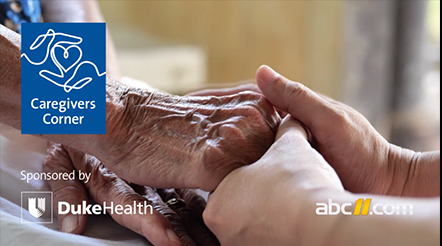Finding Solace After Loss: the Road to Recovery for Family Caregivers





Finding Solace After Loss: the Road to Recovery for Family Caregivers
The death of a loved one is a profound and deeply personal event. For family caregivers who have devoted months or years to the care of a relative, the loss can be particularly intense, leaving a void where once there was a significant daily responsibility. The journey to recovery is not just about coping with grief but also about redefining one's life after caregiving.
Understanding Grief as a Caregiver
Grief is a natural response to loss, and for caregivers, it can be compounded by exhaustion and the abrupt end to a demanding routine. Caregivers may experience a range of emotions, from relief that their loved one is no longer suffering, to guilt for feeling such relief, to profound sadness and loneliness.
Steps to Recovery
1. Allow Yourself to Grieve: It's important to acknowledge your feelings and understand that grieving is a process that takes time. There is no "right" way to grieve, and emotions will ebb and flow.
2. Seek Support: Connect with support groups specifically for caregivers. Sharing experiences with those who have been through similar situations can provide comfort and understanding.
3. Establish a New Routine: The absence of caregiving duties can leave a significant gap in your daily life. Establishing a new routine can provide structure and a sense of normalcy.
4. Take Care of Your Health: Caregiving can take a toll on your health. Post-caregiving, it's crucial to prioritize your physical and mental well-being. Regular check-ups, a balanced diet, exercise, and adequate sleep are essential.
5. Rediscover Yourself: Reengage with hobbies, interests, and social activities you may have set aside. This can help in rediscovering your identity beyond the role of a caregiver.
6. Consider Professional Help: If grief becomes overwhelming, consider seeking help from a therapist or counselor who specializes in grief and loss.
7. Honor Your Loved One: Find meaningful ways to honor the memory of your loved one, such as volunteering, creating a memorial, or participating in events related to their illness or cause.
The Importance of Self-Compassion
Recovery is not a linear process, and setbacks are normal. Practicing self-compassion and patience is key. Remember, as a caregiver, you provided a tremendous service out of love and compassion. It's now time to extend that same care to yourself.
The road to recovery for family caregivers after the death of a loved one is unique to each individual. It's a journey of healing, self-discovery, and eventually finding a new sense of purpose. With the right support and self-care, caregivers can navigate this challenging time and emerge with renewed strength and resilience.
If you need support in your caregiving journey reach out to the Duke Caregiver Support Program for free resources and support. Also, please watch our weekly caregiver educations segments every Monday on Eyewitness News 10-11am.




